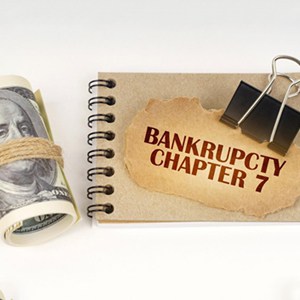 Understanding Chapter 7 Bankruptcy: The Liquidation Route
Understanding Chapter 7 Bankruptcy: The Liquidation Route
Unlike Chapter 13 bankruptcy, Chapter 7 is often termed as “liquidation”. However, this doesn’t mean that all of your assets will be sold off. In fact, in more than 90% of cases, liquidation doesn’t even occur. Chapter 7 wipes out your debts without requiring any payments to the court, except for the filing fee. It’s often the best choice for those who qualify, especially when all your desired assets can be exempted.
Be wary of law firms that try to steer you towards a Chapter 13 bankruptcy. This is often more lucrative for them as attorney fees can be several times higher than in a Chapter 7. In reality, if you qualify for Chapter 7, this is usually the best route for your financial health.
Qualifying For Chapter 7: The Means Test
To qualify for a Chapter 7, you’ll need to pass what’s known as the ‘Means Test’. This calculation considers the IRS standards for a family of your size in your area. It takes into account not only your gross income but also estimates of average expenses for a family like yours. If you don’t qualify for Chapter 7, Chapter 13 may be the next option to consider. In most areas, however, a significant number of people do qualify for Chapter 7.
The Meeting of Creditors in Chapter 7 Bankruptcy
A Meeting of Creditors might sound daunting, but it’s usually a minor event. In most cases, no creditors show up. The meeting mainly serves as an opportunity for the trustee to ask you questions, ensuring the paperwork is accurate and free from errors or omissions. The whole process typically takes around five minutes and is largely a formality.
What Debts Can be Discharged in Chapter 7?
In a Chapter 7 bankruptcy, the majority of debts can be discharged. This includes everything but child support, alimony, taxes due within the past three years, student loans, debts based on fraud, and criminal restitution. And unlike what some people believe, there’s no such thing as having ‘too much debt’ to qualify for Chapter 7.
Protecting Your Assets in Chapter 7 Bankruptcy
During Chapter 7 bankruptcy, you can keep any asset as long as there isn’t too much equity involved. For instance, you can keep your house if it falls within the equity limits. Any assets you want to retain have to be examined meticulously by your lawyer to make sure they can be exempted. If they can’t, you may want to consider filing Chapter 13. Remember, each case is unique and requires a customized approach.
Potential Losses in Bankruptcy
In a bankruptcy case, anything that isn’t exempt is at risk of being lost. That’s why it’s crucial not to file for Chapter 7 unless everything you own can be exempted or you’re willing to lose non-exempt items.
Timeline of a Chapter 7 Bankruptcy
The moment you file for Chapter 7, it comes into effect. From this point onwards, the case stays open for at least 120 days, during which creditors can file objections. However, in most cases, creditors do not object, and the bankruptcy process moves forward without major disruptions. Remember, even though the case remains open, the bankruptcy takes effect immediately.
For more information on Filing A Chapter 7 Bankruptcy In Arkansas, an initial consultation is your next best step. Get the information and legal answers you are seeking by calling (501) 200-8850 today.